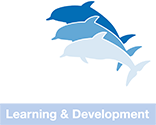
4 Tips To Help You Manage Different Personalities In The Workplace
There is joy in knowing that everybody is different. With sensitive and intelligent management, all sorts of personality types can thrive in your organisation and drive innovation and productivity within a team.
Collaborating with people who have different personalities can be very rewarding and can produce some of the highest performing teams, but with this can also come challenges. Often, people differ in their working styles and modes of communication, which can lead to misunderstandings. Divergent personal opinions could render disagreements that undermine workplace collaboration and team cohesion, and there may also be differing expectations around team dynamics and leadership.
All this means that it’s important to develop the right management approach to keep everyone happy and maintain effective teamwork. A positive company culture, mutual respect and good leadership can also help to ensure that people's differences benefit team success, rather than undermine it. So how do you manage a team with differing personalities to the advantage of all?
1. Take The Time To Understand Each Individual
Recognising that there are differing personalities in your team and managing them are two completely different things, and the latter is definitely a skill. Taking the time to listen and learn about what motivates each individual and what their needs are is key. Consider how each person reacts in different scenarios and what their inherent strengths and weaknesses are. Being emotionally intelligent and in tune with your employees can give you valuable insights into how to delegate tasks and inform role-setting decisions.
2. Adapt Your Leadership Style
Leading a team can be difficult, especially when your dealing with strong and perhaps opposing personality types. This means that as leader, you need to adapt your style to them. The best leaders don’t adopt just one style of leadership – they’re skilled at several and have the flexibility to switch between styles as the circumstances dictate, so learn what your employees require and adopt a leadership approach that will get the best out of that individual or team.
For example, providing very clear instruction to someone who is detailed oriented, including structure and regular check-ins for a blue-sky thinker, or adapting the way you would approach and talk to someone who is introverted vs someone who is extroverted. By adapting your style, you can keep people motivated and help them play to their strengths.
3. Create A Conducive Company Culture
Teams thrive when they feel trusted and supported to perform their roles to the best of their ability. By creating a culture that is conducive to this, that openly embraces people's differences, and that promotes values such as respect and inclusivity, you are showing your commitment to your people and ultimately practicing what you preach!
When creating a culture that truly engages and understands it's employees, it's also important not to be too quick to label either. Differences are an asset when people are able to express them freely, but if your people begin to feel pigeonholed, they may react defensively.
4. Lead By Example
Setting goals and working standards is important, but one of the surest ways to build a productive and inclusive culture is to lead by example. A team leader sets the agenda and the tone for the whole team. Showing respect for individual differences not only gets the best out of each employee but gives meaning to organisational values. Also, by leaders openly accepting their own individual strengths and weaknesses, they prove to their employees that everyone has a place in the team and much to contribute.
GRA's Approach
GRA has extensive expertise in helping organisations to manage different personality types – for better team dynamics and increased workplace productivity. We offer tried and tested psychometric tools and personality profiling as part of our team development programmes, helping individuals to gain greater self and team awareness.
To find out more about the GRA approach to team development and how it can support your business, please call 01962 779911.
Image Source: Dreamstime



